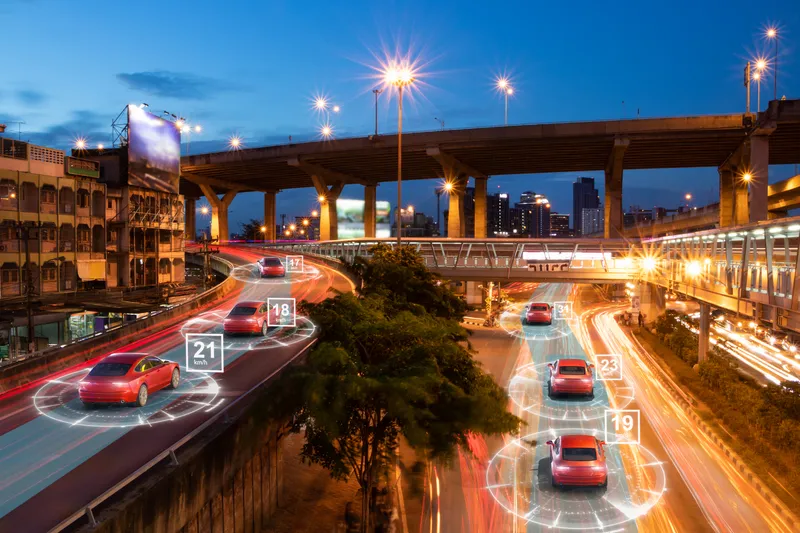European Commission and Parliament officials said during a panel discussion in Brussels that they were moving towards regulating connected cars, but are still a long way off from sealing new legislation on autonomous vehicles.
Major car companies have been running tests on autonomous or driverless cars over the last couple of years and some European companies have launched test drives with autonomous cars on public streets. Germany's Daimler got the go ahead this month from state authorities to drive the
September 8, 2015
Read time: 3 mins
European Commission and Parliament officials said during a panel discussion in Brussels that they were moving towards regulating connected cars, but are still a long way off from sealing new legislation on autonomous vehicles.
Major car companies have been running tests on autonomous or driverless cars over the last couple of years and some European companies have launched test drives with autonomous cars on public streets. Germany's Daimler got the go ahead this month from state authorities to drive their autonomous cars in Baden-Württemberg provided there is a driver in the car.
The British government published guidelines for driverless cars earlier this summer that similarly requires a person to be able to take control of the car even when it's driving autonomously.
But EU legislators are being cautious about autonomous cars. European Parliament vice president Adina Valean said it is still too early to be talking about autonomous cars, not necessarily because the technological developments won't be there, but because the complexity of the whole thing is huge.
The UN Convention on Road Traffic was amended last year to allow autonomous driving if a person in a car is still able to shut it off. EU countries have signed on to the convention, but the United States, where large tech companies are testing their own autonomous vehicles, is not a signatory.
While car companies are dabbling with technology that enables autonomous driving, vehicles that fully function without drivers are still in the works.
Connected cars use internet connectivity to perform various functions, including measuring location, road conditions and car performance.
Autonomous or driverless cars do not need driver intervention to function. Car companies have been calling for laws that would allow autonomous cars to drive more freely in Europe.
The EU has been leading initiatives to promote road safety and traffic management by pooling information provided by cars that are hooked up to the digital network infrastructure, as early back as 2010. In particular, the EU executive wants the industry to convert their efforts into "a global market success" via enhanced co-operation and standardisation of ICT-aided cars. Car manufacturers have also invested heavily in these.
"With connected cars, we need co-operative research to help develop global standards," said Neelie Kroes, the EU's former Digital Agenda Commissioner.
Major car companies have been running tests on autonomous or driverless cars over the last couple of years and some European companies have launched test drives with autonomous cars on public streets. Germany's Daimler got the go ahead this month from state authorities to drive their autonomous cars in Baden-Württemberg provided there is a driver in the car.
The British government published guidelines for driverless cars earlier this summer that similarly requires a person to be able to take control of the car even when it's driving autonomously.
But EU legislators are being cautious about autonomous cars. European Parliament vice president Adina Valean said it is still too early to be talking about autonomous cars, not necessarily because the technological developments won't be there, but because the complexity of the whole thing is huge.
The UN Convention on Road Traffic was amended last year to allow autonomous driving if a person in a car is still able to shut it off. EU countries have signed on to the convention, but the United States, where large tech companies are testing their own autonomous vehicles, is not a signatory.
While car companies are dabbling with technology that enables autonomous driving, vehicles that fully function without drivers are still in the works.
Connected cars use internet connectivity to perform various functions, including measuring location, road conditions and car performance.
Autonomous or driverless cars do not need driver intervention to function. Car companies have been calling for laws that would allow autonomous cars to drive more freely in Europe.
The EU has been leading initiatives to promote road safety and traffic management by pooling information provided by cars that are hooked up to the digital network infrastructure, as early back as 2010. In particular, the EU executive wants the industry to convert their efforts into "a global market success" via enhanced co-operation and standardisation of ICT-aided cars. Car manufacturers have also invested heavily in these.
"With connected cars, we need co-operative research to help develop global standards," said Neelie Kroes, the EU's former Digital Agenda Commissioner.








